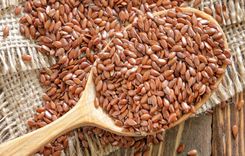How To Improve Indoor Air Quality This Winter?
By Hafsa Hafeez
23 November 2022
Not just because of the fresh apple cider and pumpkin spice lattes, fall is in the air. Your interior air quality maybe 2 to 5 times worse than outdoor air, according to the EPA. Families tend to spend more time indoors as the weather cools and the kids return to school. Healthy indoor air quality is crucial because of this. The top 5 recommendations for improving indoor air quality are shown below.

How Could the Indoor Air Be Unhealthy?
You've probably heard that factors like factory exhaust, wildfire smoke, and automobile emissions from traffic can contaminate and harm outdoor air.
However, there are times when indoor air pollution exceeds that of outdoor air.
This may be a result of the supplies we use to construct our homes, such as paint, sealants, flooring, and insulation, as well as the furnishings, electronics, appliances, toys, carpets, and air fresheners we keep within. Common indoor activities like cooking, which emits fumes, and cleaning with chemicals both contribute to indoor air pollution. Another significant factor in poor indoor air quality is dust. Chemicals are more hazardous when they adhere to tiny dust particles that humans breathe in.
Here are some ways in which you can clean your indoor air:
Purge Frequently
Regularly and frequently clean. We don't just intend to wipe down the counters and move on. Wipe off ceiling fans, air vents, exhaust fans, and other areas where dust and pet dander could collect to enhance the quality of the air within your home. Other strategies include routinely vacuuming, steam cleaning the carpet, and taking off shoes before entering the house.
Avoid using harmful air fresheners
While many air fresheners claim to smell fresh and clean, this is not always the case. You might want to rethink using air fresheners if they contain volatile organic compounds (VOCs). Use only natural air fresheners to reduce indoor air pollution. Both your health and the quality of the air you breathe can be negatively impacted by toxic chemicals.
Ensure that your house has adequate ventilation.
Asthma, allergies, and other respiratory ailments have all been linked to inadequate ventilation and poor indoor air quality. This fall, try cracking a few windows to let fresh air flow through your house. When cooking or taking a bath, you should actively employ ventilation and exhaust fans. In addition to enhancing ventilation and removing harmful air contaminants, this can also help you raise the humidity levels in your house.
Switch to new filters.
The majority of manufacturers, and with good reason, advise changing your air filters every one to three months. Filters can capture pollutants including dust, dander, and debris. If you don't replace your filters, ultimately they'll let toxins into your home's HVAC system. Changing your filter can do so much more than just aid with indoor air quality; it can also help with energy efficiency, extend the life of your HVAC system, improve airflow, and a whole lot more.
Plan a duct cleaning.
Dust and allergens can accumulate in your ductwork and spread irritants throughout your house. You may contribute to enhancing the quality of the air inside your home by arranging duct cleaning with an HVAC expert. Professional duct cleaning can increase airflow efficiency, reduce allergies and irritations, make your home healthier, and help you breathe easier.
Install a dehumidifier and/or a humidifier for the entire house.
Fall weather reduces the need for air conditioning (AC), which can result in insufficient humidity levels within your home. An ideal humidity range is between 30 and 50 percent.
Lack of humidity can increase asthma and allergy symptoms as well as cause respiratory problems. The American College of Allergy, Asthma & Immunology estimates that 24 million Americans suffer from asthma, and allergies are the sixth most common chronic illness.
A whole-house humidifier could create the right balance if your home feels too dry. A whole-home dehumidifier could help similarly by keeping your house from getting too humid
You Might Also Want To Read This
Popular Posts







